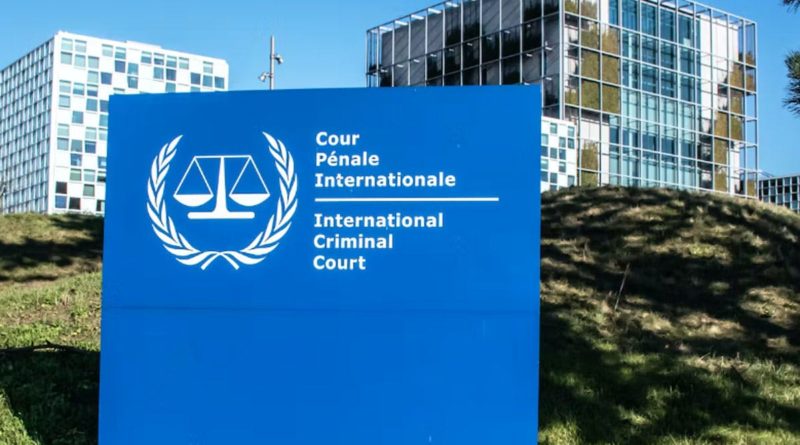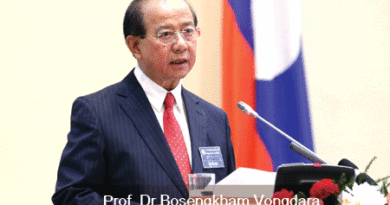COLUMNISTS | FLEA MARKET OF IDEAS- The ICC’s continuing jurisdiction over PH (1)
.
Word is that the Philippine government has allowed International Criminal Court (ICC) investigators to come to the country to do their work. While I have no personal knowledge if there’s truth to all this talk, the major change in tone of the Marcos administration gives strong credence to these rumors.
In 2011, the Philippines became a member of the ICC. In 2018, our country gave notice of its withdrawal from the international court. In 2019, the withdrawal became effective pursuant to the one-year prospective effectivity provided by the Rome Statute, the founding treaty that established the ICC. Despite the withdrawal, however, the ICC Office of the Prosecutor (OTP) continued its investigation into whether crimes against humanity were committed in Davao City and in the entire Philippines from 2011 to 2019, when the Philippines was still an ICC member. This prompted the Philippine government to question the court’s continuing investigation.
The ICC Pre-Trial Chamber (PTC) affirmed the authority of the OTP to continue with its investigation. On appeal by the Philippines, the five-member ICC Appeals Chamber (AC) sustained the power of the OTP to continue its probe, in a very close 3-2 vote. The two dissenting judges stated that the OTP should have applied for authority to investigate, and the PTC should have granted such request, both before the Philippine withdrawal took effect in 2019. Since both the request and grant of authority happened in 2021, or after the Philippine withdrawal became effective, the ICC no longer has jurisdiction over the Philippines, the minority judges reasoned out.
Under ICC rules, an individual eventually named as an accused will have the right to again question the jurisdiction of the ICC and, among others, argue that: 1) After our country’s effective withdrawal, the ICC completely lost jurisdiction over the Philippines even for crimes committed from 2011 to 2019; and 2) alternatively, adopt the position of the AC dissenting judges.
By March 2024, six of the 18 ICC judges will retire, including one majority judge and one dissenting judge of the AC, plus one judge of the PTC, who decided the Philippine case. This will engender hope in any accused that there’s a chance to obtain a favorable decision the second time around. The Rome Statue consists of both substantive provisions and procedural/technical rules that had been agreed upon by sovereign countries. By becoming state parties to the treaty, these countries consented to be under the jurisdiction of the ICC.
The substantive provisions of the treaty include the international crimes defined and made punishable under the treaty, the ICC complementary jurisdiction to try these crimes, the right of state parties to withdraw from the ICC, and the consequences of a country’s withdrawal, just to mention a few. The procedural/technical rules pertain to matters like the number of days and requirements for a state party or an accused individual to exercise rights or fulfill obligations before the ICC. The power and duty of any court is to apply both the letter and intent of a law, and in case of conflicting interpretations, to provide the correct interpretation.

A court cannot create entirely new substantive provisions or totally new procedural rules, in the guise of making an interpretation, because it will usurp the exclusive powers of a different institution with the mandate to create laws and rules. In a national setting, it will amount to judicial legislation because the national court will usurp the powers of the legislative branch. In an international setting like the ICC, it will even be more abhorrent because it will amount to judicial treaty-making where the international court will usurp the sovereign powers of the state parties.

While any eventual accused may still insist that the ICC completely lost jurisdiction over the Philippines when the latter’s withdrawal became effective, there’s no weighty support for such an argument. Even the dissenting judges of the AC essentially agree that the ICC retains jurisdiction even after a country’s effective withdrawal. What the dissenting judges declared, however, is that, for the ICC to have continuing jurisdiction beyond a country’s effective withdrawal, two things must happen: the OTP request for authority to investigate and the PTC’s grant of such authority, must both happen before the effective date of withdrawal.
In my humble opinion, but with utmost respect, the dissenting opinion of the minority judges, if adopted, will create unratified restrictions on substantive rights provided by the Rome Statute, and also impose entirely new procedural/technical rules under the treaty. It will amount to judicial treaty-making, and will result in creating virtual amendments to the Rome Statute.
Comments to [email protected]

@[email protected]
(To be continued)
—————-










